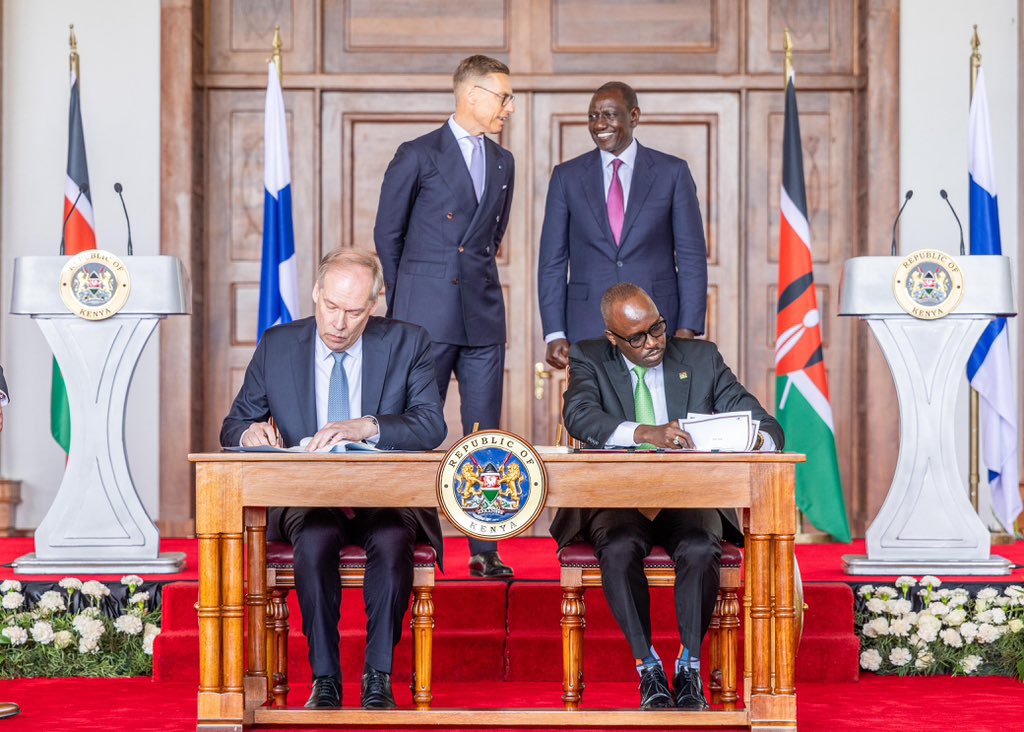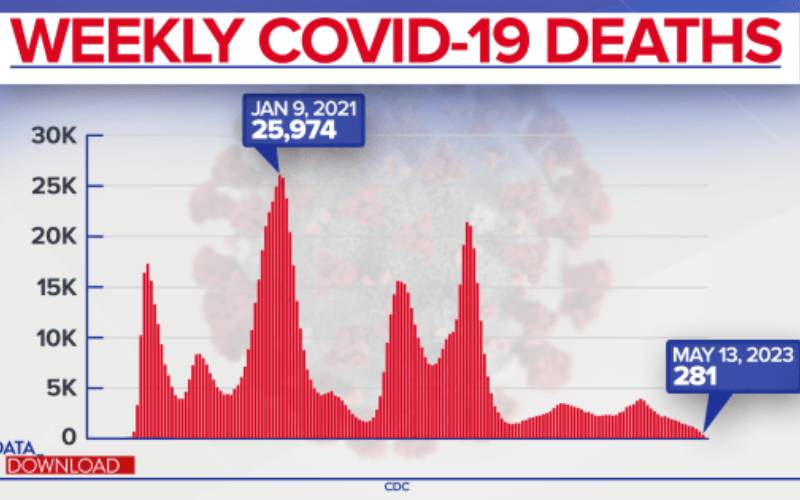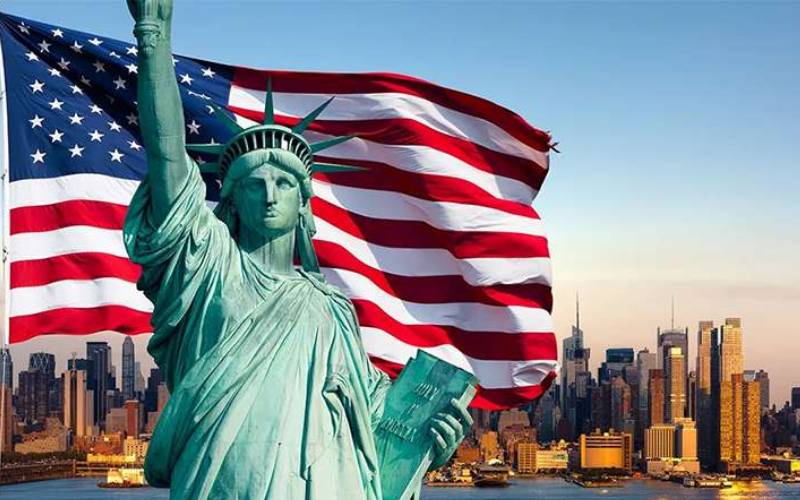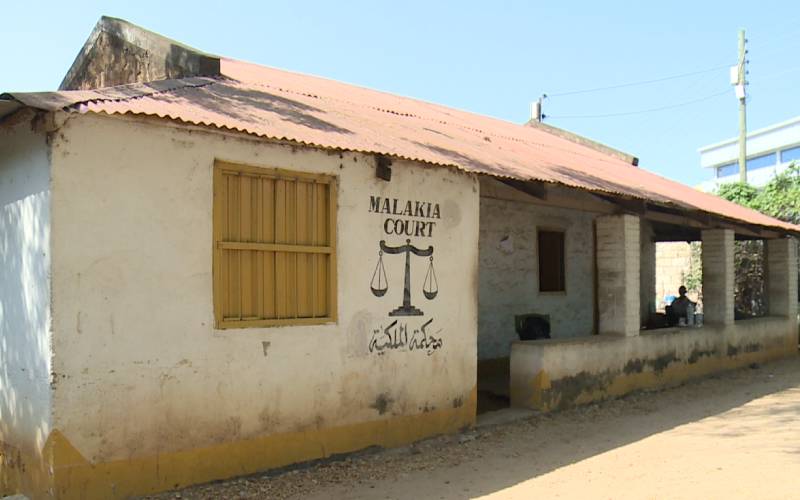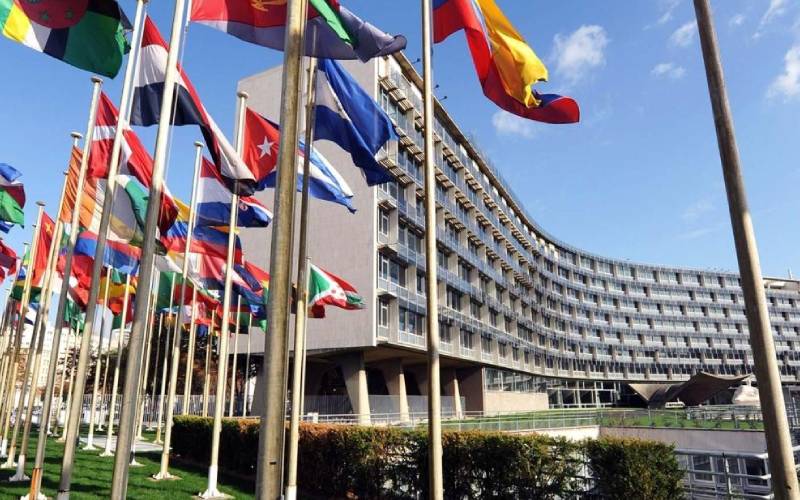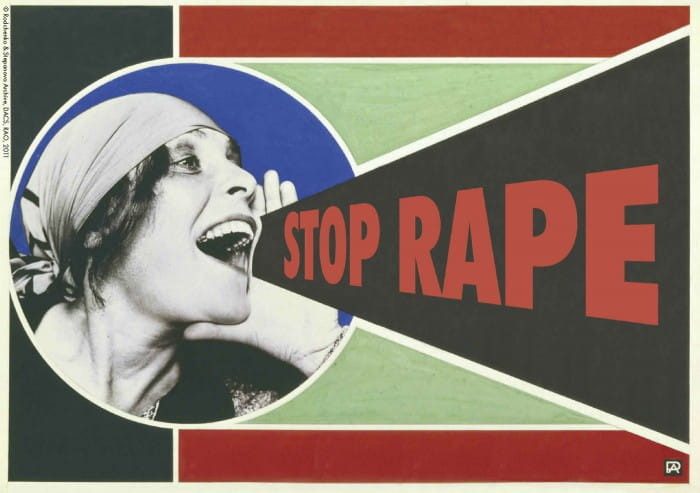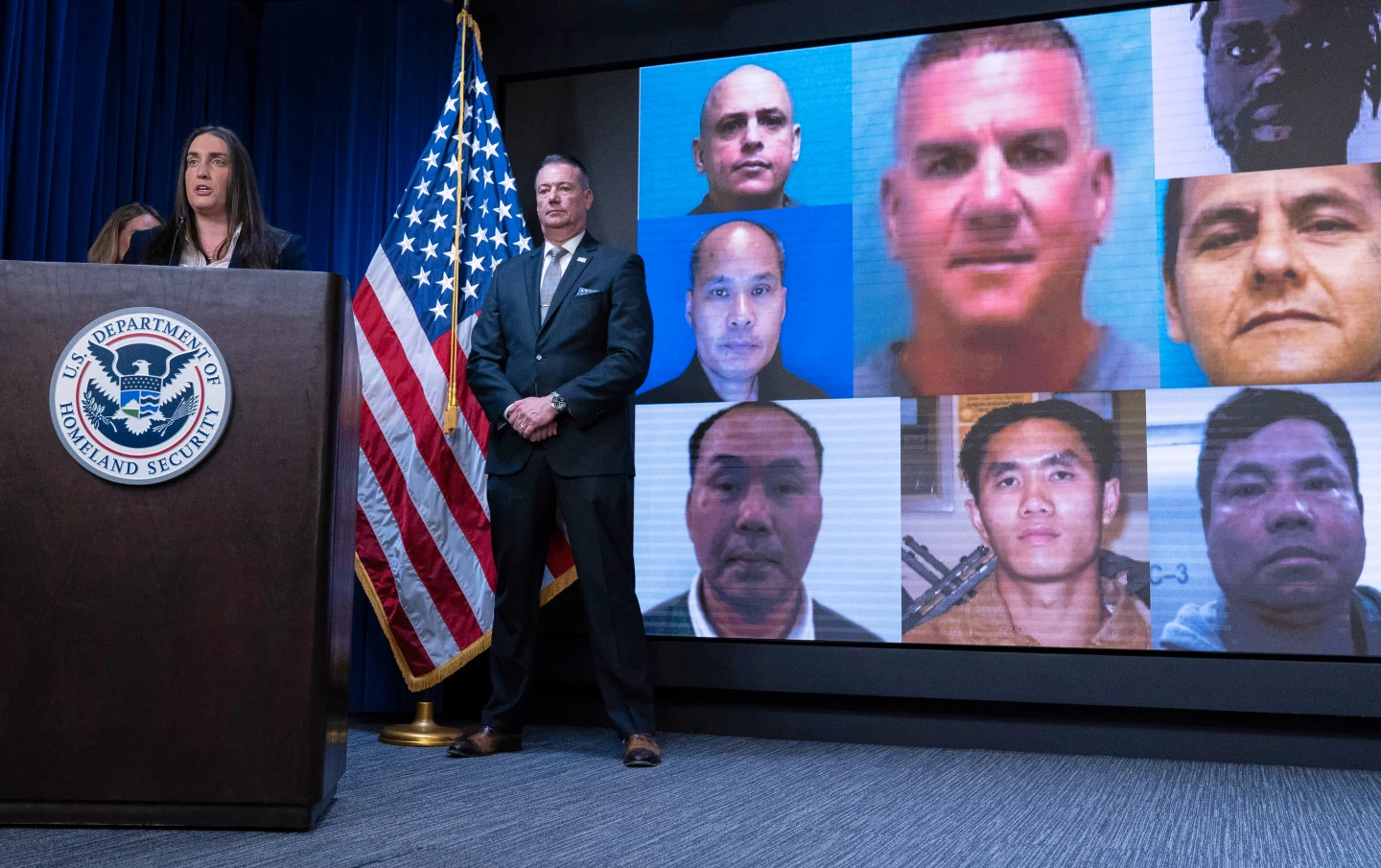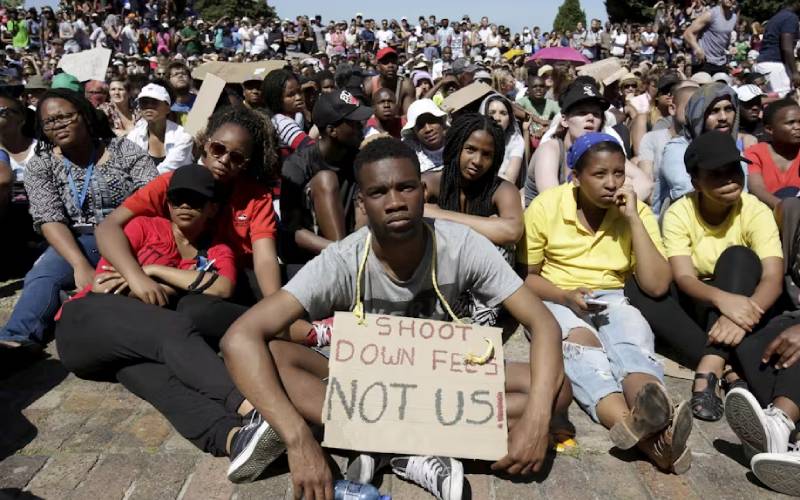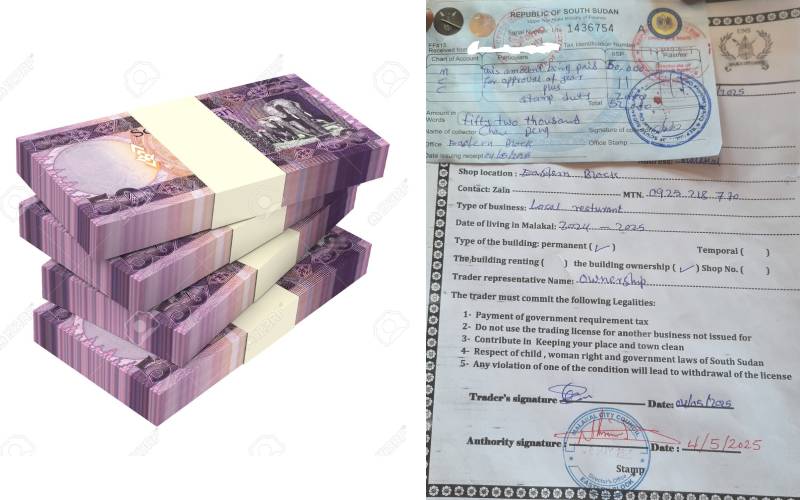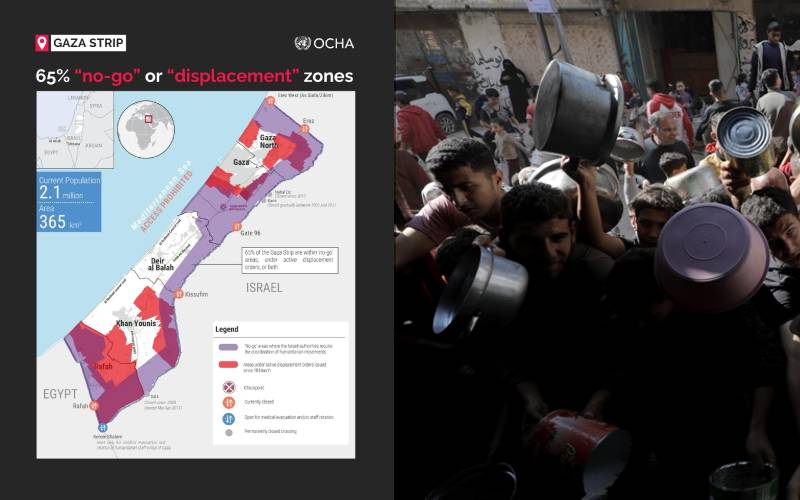The visit of the President of Finland (the happiest country on earth), Alexander Stubb, might have resuscitated a litmus test of democracy in Kenya. The political struggle between President William Ruto and the long-time opposition leader Raila Odinga raised the stakes in the quest for democracy.
Several street protests were marked with what appeared to be the killing of protesters with live bullets, according to media reports. After failure to secure the regional seat of the African Union Commission (AUC), Mr. Odinga preferred a handshake with Ruto’s government, whom he had since opposed on the grounds of economic downturn and his usual song of rigging. Several Kenyans viewed this as reckless politics, while others applauded it.
With the cordial visit and the Memorandum of Understanding signed by the two countries to exert concerted efforts towards world peace, this may be thought to earn Kenya the title of the happiest African country in the nearest future.
The President of Finland Alexander Stubb on Monday attested that his country had gone through difficulties in the past couple of years and learnt a lesson that preparation is important for a nation to live in peace and prevent war.
“But there is one lesson I think generally that we have learned throughout our history, is that in order for you to be able to live in peace, and prevent war, you have to prepare for it,” Stubb said.
Democracy on test
The Finnish Head of State argued that democracy remains a shared commitment between his country and Kenya.
“We have to remember that democracy is something that…we have to protect, but you have to work at all times, and I think William and I share that goal,” he said.
Stubb pledged that their discussion with President Ruto was an assurance that the two countries would lift the face of democracy through the rule of law, and that their countries would grow in strong protection of human rights.
“And we feel very strongly that working towards more liberal democratic societies where the rule of law is basis and foundation, where human rights are the centre of whatever we do, is the best way to push the dossier forward,” Stubb added.
But Kenyan journalists raised a concern of gross human rights violations during protests blamed on the Kenyan government.
A report from Eyewitness accounts published by the Human Rights Watch documented 31 people killed between April and July 2023 by the Kenyan police. The report detailed that 26 people (24 men and 2 women) were shot, and two children died of tear gas in residential areas. Three men were beaten to death by the police.
Hardworking?
The Kenyan President, William Samoei Ruto, said all the abductees during post-election protests in Kenya had been reunited with their families.
“I undertook to the country that being a democracy and robustly so, that Kenyans must not, as has happened in the past, where Kenyans disappeared; and their bodies were found in all manner of places,” he said.
“That that will never happen under my administration and all the people who disappeared who were abducted in what you said, all of them have been brought back to their families and to their homes. And I have given clear and firm instructions that nothing of that kind of nature will happen again,” Ruto promised.
In 2024, an estimated 26 percent Kenyans lived below the poverty line. The rural populations 0f 12.1 million live on less than $2.15 a day while 1.9 million (also extremely poor) live in Urban areas.
Ruto said he had established accountability mechanisms to sort out matters of human rights abuses and adhere to dignity, compassion and protection of vulnerable Kenyans.
Call to action
Seven civil society organisations in Kenya presented to the Finnish President the need for justice to be served to the deceased and abducted protesters.
“The meeting discussed the imperative for accountability for the deaths and abductions of Kenyan protesters,” a joint statement of the seven civil society organisations reads.
They also called for an intervention of the Finnish government regarding media independence, youth political inclusion, “reducing femicide”, gender-based violence, corruption and impunity, digital disinformation and human rights violations.
It further called for a rule of law, democracy and accountability as the nation heads towards the General elections in 2027.
Political dilemma
Democracy in Kenya has gone through several trials since the country gained its hard-earned independence from the British in 1963 under the leadership of Mzee Jomo Kenyatta. Kenya has a robust multiparty system; however, the country went through turbulent times in its quest for democracy.
Kenya’s government might have been a little bit smooth at first until the death of Mzee Jomo Kenyatta in 1978, although some criticism might have existed. Then Daniel Toroitich Arap Moi took the mantle of leadership. Critics label Moi’s government to have been the most corrupt for 24 years until 2002.
The tides of multiparty system and what seemed to look like Kenyatta-Moi families’ succession led to resistance of Uhuru Kenyatta succeeding Moi under Kenya African National Union (KANU) ticket.
Raila and Mwai Kibaki had their political marriage. However, after the elections, there was a political divorce which saw Raila not getting his promise of a prime minister.
This led to the 2007 politically motivated ethnic violence, which killed hundreds of Kenyans. Some Kenyans became refugees in Uganda. But he was later offered his right and ruled together with Kibaki. This rule birthed the current Kenyan constitution, including presidential rule for two terms.
Uhuru Kenyatta later became the President after battling ICC charges related to the 2007 elections. They later teamed up with his fellow accused at the ICC to win elections by a landslide, defeating Raila Odinga. William Samoei Ruto would later become the President of Kenya after Uhuru Kenyatta's rule.
Still, Odinga’s struggle for power did not end, and he kept on dealing Kenyan youth a blow every time they took to the streets. Kenyans seem to be viewing a window of opportunity to exploit democracy and freedoms they desire through Kenya-Finland bilateral relations. Will the recently signed Memorandum of Understanding with the Finnish government deliver to Kenyans the democracy they long for effortlessly?
